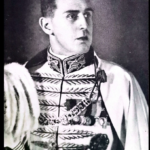JOUBERT, PETRUS JACOBUS
- 4 Min Read
Petrus Jacobus Joubert (January 20, 1831-March 27, 1900) was one of the most important military and political leaders in the independent South African Republic (Transvaal).

PHOTO CAPTION: Petrus Jacobus Joubert SOURCE: EA Library
Joubert was the son of a former missionary. As a child of six, he and his parents had joined the Great Trek under the leadership of Piet Retief. Like most Voortrekker children Joubert received only a rudimentary education. He spent much time improving his knowledge by reading as widely as possible. Overseas trips brought Joubert into contact with a wide range of personalities and this broadened his knowledge and insight. Joubert’s standard of learning was higher than most of his fellow countrymen.
Although Joubert was first of all a farmer, he also showed a keen interest in business and trade. Soon after settling in the Wakkerstroom district of the Transvaal, on the farm Rustfontein, Joubert was elected to the Transvaal legislative assembly (Volksraad) in 1860. In 1873, Joubert became chairman of the Volksraad and when President T.F. Burgers left for Europe in 1875, Joubert was chosen as acting state president of the South African Republic.
Joubert cautiously approached political issues and his peace-loving temperament made him rather hesitant to act firmly when the necessity arose. He was, however, no pacifist and when all peaceful attempts to regain the independence of the Transvaal after the British annexation in 1877 failed, Joubert was in favour of an armed struggle against Britain.
When in December 1880 the Transvaalers decided to take up arms against the British, Joubert, together with S.J.P. Kruger and ex-President M.W. Pretorius was appointed as a triumvirate to manage the affairs of the country until a government could be elected.
During the first Anglo-Boer War (1880-81) Joubert led the Boer forces during the battles of Laing’s Nek, Ingogo, and Majuba. The war ended in a disastrous defeat for the British and Joubert’s reputation as military leader was established. After the war partial independence was granted to the republic under British sovereignty.
Joubert had ambitions of becoming president but he failed at every election held after 1881. In 1892, however, he lost by only a few votes. He nevertheless played a prominent role in Transvaal politics. Until 1896 he held both the offices of commandant general and superintendent of native (African) affairs.
As superintendent of native affairs, Joubert tried to keep peace among the many different African groups living in the Transvaal. The republic considered these groups as subjects, and in the period 1881-98 Joubert led various campaigns against African chiefs with whom it came into conflict. In pursuing these campaigns, he always favoured a siege to a frontal attack, to avoid unnecessary bloodshed.
After the discovery of gold on the Witwatersrand, thousands of immigrants flocked to the Transvaal to make their fortunes in the newly developing gold mining industry. President Kruger was afraid that these Uitlanders (“outlanders,” or foreigners who did not speak Dutch) would dilute the Boer character of his state and refuse their political rights and vote. Joubert did not share Kruger’s fear and made several abortive attempts to gain political rights for the foreign population of the Transvaal. In so doing, however, he forfeited much support among his fellow countrymen.
By 1896, after the unsuccessful attempt by Dr. Leander Starr Jameson to overthrow the Kruger government in the notorious Jameson Raid, it became clear that Britain had definite designs on the Transvaal. Joubert was still hopeful that the Uitlander problem could be resolved peacefully and therefore made no serious attempt to build up the republic’s military strength.
When war broke out in 1899, Joubert led the Transvaal forces against Britain. His military equipment was rather outdated and the commandant-general’s policy of siege soon proved completely outmoded in waging a modern war against Britain.
Early in 1900, Joubert handed over the commandant-generalship to the young Louis Botha. On March 27, 1900, Joubert died of peritonitis and was buried on his farm Rustfontein. During his long career as a politician and military leader, Joubert was loyally supported by his wife Hendrina Joubert, née Botha, whom he had married in 1851.
WERNER VAN DER MERWE



